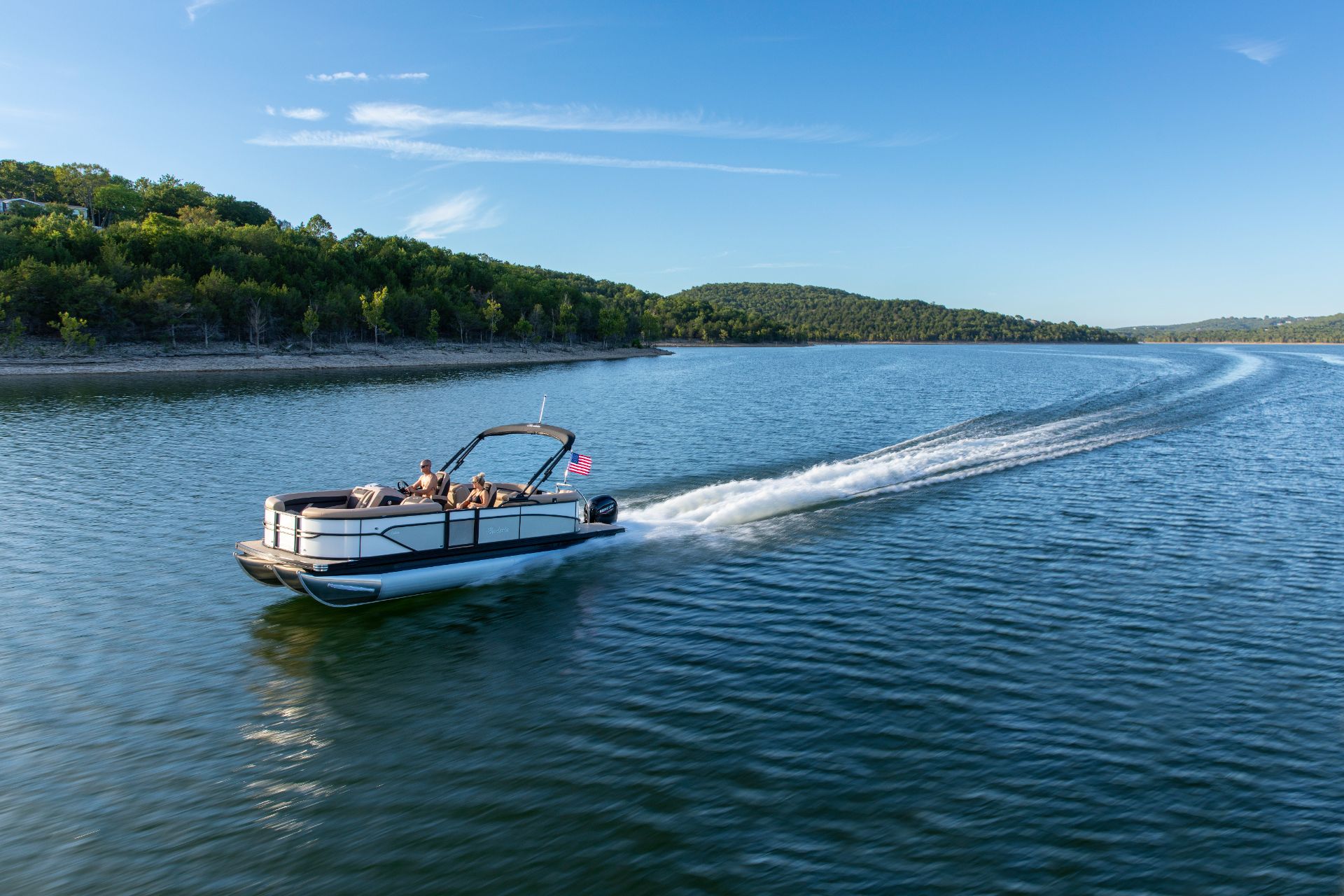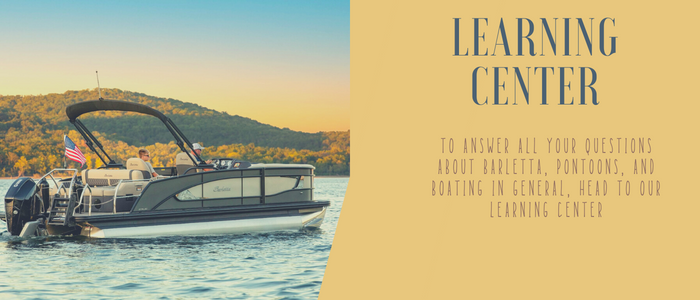How to Become a Boater (4 Simple Steps)
Boating has never been so easy yet so difficult as it is with the boats we see today. Let me break down what that means. Boats are simpler than ever to drive and maneuver because of the updates in technology in recent years. Although boats are “easy” to drive, there are more innovations and systems on board than ever before as well.
As a new boater, this new world can be quite intimidating and overwhelming. It can be hard to figure out where to start. Even once you’re in, it can be difficult to become a comfortable boater. This article will guide you through the steps to take to become a confident and safe boater.
With the ever-evolving watercraft, even as a lifetime boater, it can be hard to keep up. Whether you’re new to boating altogether or you just bought a new boat, a refresher never hurts. The steps outlined in this article can help anyone looking to get more comfortable behind the wheel of any boat.
Don’t let the fear of the unknown keep you from enjoying time on the water. If you follow these steps, you’ll be an expert before long. Put the worries behind you and push off from the dock.
1. Ask an Expert
The first step may come as a surprise but ask an expert for help. Whether it’s a friend who knows the boat very well or a representative from where you purchased the boat, get an expert involved. This is such an important step because of all the new innovations and upgrades on boats, it’s hard to know what all the buttons do and can become overwhelming.
The best time to do this is when you take delivery of the boat. Check out this delivery day checklist, it will help you remember all the important questions. Most dealers will even take the boat on a test run with you to go over how it operates. Lean on your dealer even after you get the boat home, they’re your best resource.
To Learn About the Functioning's and Systems
Most importantly, you’ll want to learn how the boat functions in the simplest way starting with turning the motor on. I'm not being funny here, there are a few steps to turn every boat on, especially newer models, and these will differ based on brand and model.
For example, do you know where the battery switch is located to turn it on? Or how about the safety lanyard, which if not applied properly, will keep the engine from turning over? There are quite a few factors in starting the boat alone, that’s why you should go through this process upon taking delivery.
Next, learn how to put the boat in motion and how to take it out of motion. This is the most important thing about boating to understand. Since there are no brakes on a boat, you need to learn how quickly you can stop by taking your boat out of motion. Most popular bodies of water are quite busy during peak boating season so understanding this simple concept is imperative to your safety and everyone else's.
Away from the most basic functions of the boat, you need to know what kind of systems are on board and how to properly work them. A lot of boats have things such as touch screens, fish finders, towing systems, and other complex electronics. These are just a few of the common ones, however, there are many others out there to understand depending on the type of boat you purchase.
Lean on your dealer for these types of questions. Doing so will help you build a relationship, which is important because you’ll find more questions to ask once you get the boat home and docked. Understanding your boat fully will make driving and operating it on a daily basis much easier and enjoyable.
How to Drive the Boat Safely
I touched on this in the past section, but I want to emphasize the importance of this step. Boats are complex nowadays and they seem to continue to grow in length and weight. The bigger the boat, the harder it is to control. This is why it is so important to learn from someone who is comfortable behind the wheel.
There are so many factors that determine how quickly you can slow or turn a boat. Take pointers from an expert and learn from their experience. It will help keep everyone safe. Taking time to fully understand how a boat functions is worth it in the end.
Especially as a new boater, you are able to learn a tremendous amount of information just by observing someone who has been boating for a long time. You’ll learn who has the right of way and how to handle different situations that you may run into. Learning about these important safety laws and rules will keep everyone safe.
Docking the Boat
Another crucial part of boating that is necessary to learn is how to dock a boat. Whether you will be docking your boat on the side of a dock or in a lift, you’ll need to know how to do this safely. Otherwise, there is no way you will be able to safely take your boat out on the water and return at the end of the day.
Docking a boat can sometimes be the most difficult part of the entire boating process. Boats are not as maneuverable as a car because there are no brakes. If you have an inboard, you can’t always reverse in both directions. Even with an outboard, currents and wind can push your boat all over the place.
Learning how to dock your boat calmly and safely is a skill that is required to be a confident boater. The first few times you dock a boat, it can be nerve-racking. I especially recommend getting help from an expert who can walk you through the steps very calmly.
This will help your confidence and skill as a boater greatly in the long run. And remember when docking, don’t go faster than you’re willing to hit the dock.
Simple Fixes
Learning about the world of boating means learning that things will go wrong. You will run into issues at some point or another. If the engine won’t turn over, there are a few things you should always check before calling your dealer. Sometimes these things can cause issues with boats if they are not taken care of properly.
When you do run into an issue with your boat it’s important to handle the situation with logic and safety in mind. Not every hiccup requires assistance, but at other times a mechanic will be needed. Here are a few examples of situations you can likely fix on your own, check these items:
- Is the safety lanyard hooked up?
- Is there gas in the boat?
- Are the batteries turned on?
- Are the batteries dead?
All of these questions have fairly simple fixes. If you answer yes to any of these, the boat will likely not start but does not require service from your dealer. Even as a lifetime boater, I’ve fallen victim to the safety lanyard that came unhooked.
Luckily, if the lanyard is the issue, all you need to do is connect it. Now, there may be a time that your boat is not functioning properly, and you’ve checked out all these possible problems. At that point, I recommend calling your boat dealer. They will be able to diagnose the issues and get everything sorted out.
If you’re unsure about something, it never hurts to ask an expert. In the end, they will at the very least be able to point you in the right direction. If you handle issues that arise with patience and logic, you’ll likely be able to get them solved quickly.
2. Practice Everything
If you’re new to boating, that may have seemed like a lot of information to remember. After a few trips out on the water, these things will become second nature. The more you practice, the sooner you’ll be an expert on the boat yourself. You’ll gain the confidence needed to drive and operate the systems on your boat and most importantly, how to keep everyone safe.
Practice driving the boat on open water away from other boats when you’re first learning. Learn how to handle different types of situations such as current or wind depending on where you’re boating. Every situation will make you a stronger and safer boater.
Just like everything else in life, practice makes perfect. At some point, it won’t feel like practice anymore. It’ll be a boat cruise or a day on the lake. Every time you head out on the water, you’ll be sharpening your skills as a boater.
3. Ask Questions
When you first start boating, there is so much to learn it can sometimes be hard to think of questions. However, as time goes by, you’ll have a list. Never be afraid to call an expert to ask questions about your boat. It will help you understand your boat as best as possible.
As questions come up, check with your dealer, YouTube is a great resource, and we’ve got a Learning Center chalked full of info for all boaters.
4. Enjoy Your Boat
With this guide, you should have no problem enjoying your boat. It should help take the fear out of boating which will lead to more quality time with family and friends. Boating is like any other hobby you care to learn. It takes effort to learn and to feel comfortable but with time, you’ll be an expert with the confidence to drive your boat safely.
Once you have the skills to boating, you will be able to enjoy warm, sunny weather to the highest extent. Boats are a great way to socialize and spend time with those you care about. Don’t skip these simple steps when starting out as a boater. Every one of these steps will help you stay safe and happy while out on the water.



